Photos and report by Mary Sinanidis.
Commemorating the 75th anniversary of the UN Convention on the Prevention and Punishment of the Crime of Genocide, faith leaders from diverse backgrounds gathered in Melbourne on December 9.
Amidst the sombre beauty of Ray Bramham, they united in prayer, mantras, chants and hymns for world peace and remembrance of victims of genocide.
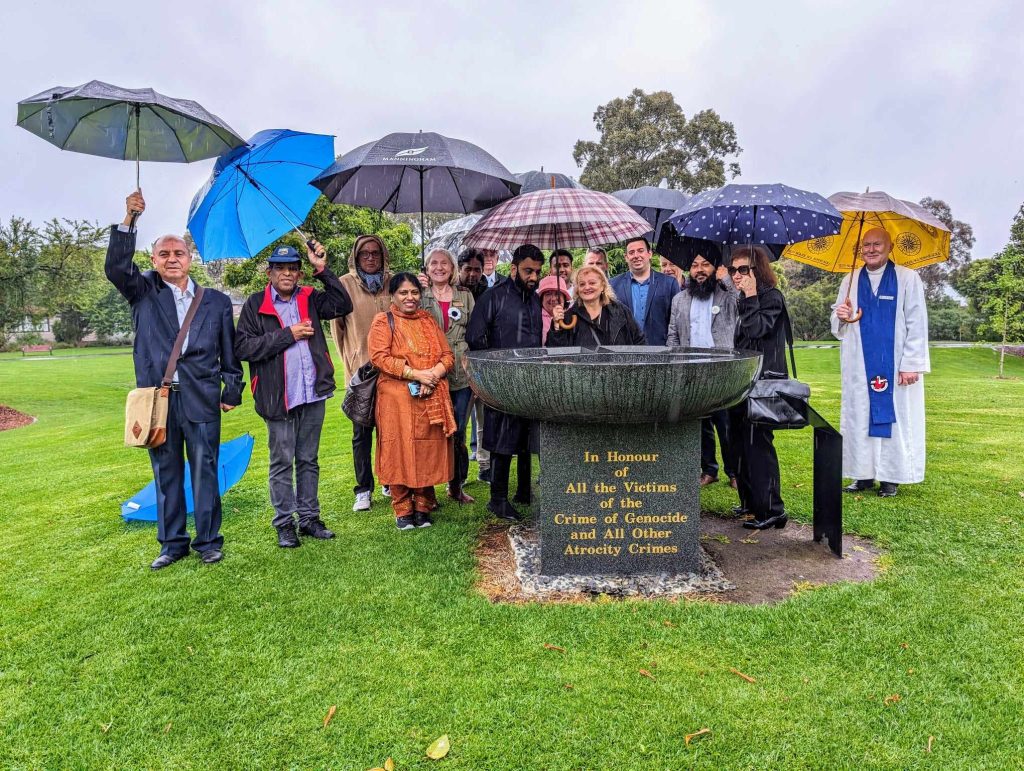
With nature reflecting the sadness of genocide, rain fell on the Monument for All Victims of Genocide and Other Atrocity Crimes – the only of its kind in the world.
Fr Vasilios Kourtessis told The Greek Herald that suffering is universal.
“Victims of genocide aren’t just Orthodox or one faith or a specific race,” he said. “Everyone suffers.”
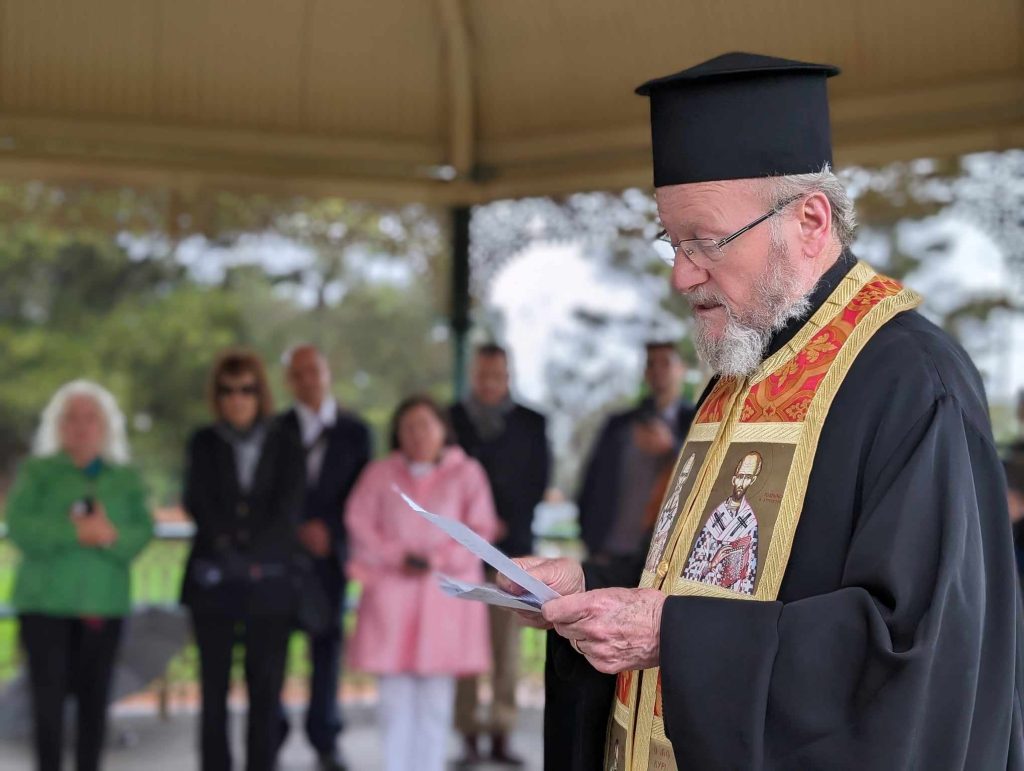
Bawani, a member of the Sri Lankan Tamil Christian Community, sang a heartfelt ‘Make me a channel of your peace,’ her voice resonating with the pain. Tears poured down her cheeks as she remembered the Tamil mothers who mourned children they lost in a sea of dead bodies.
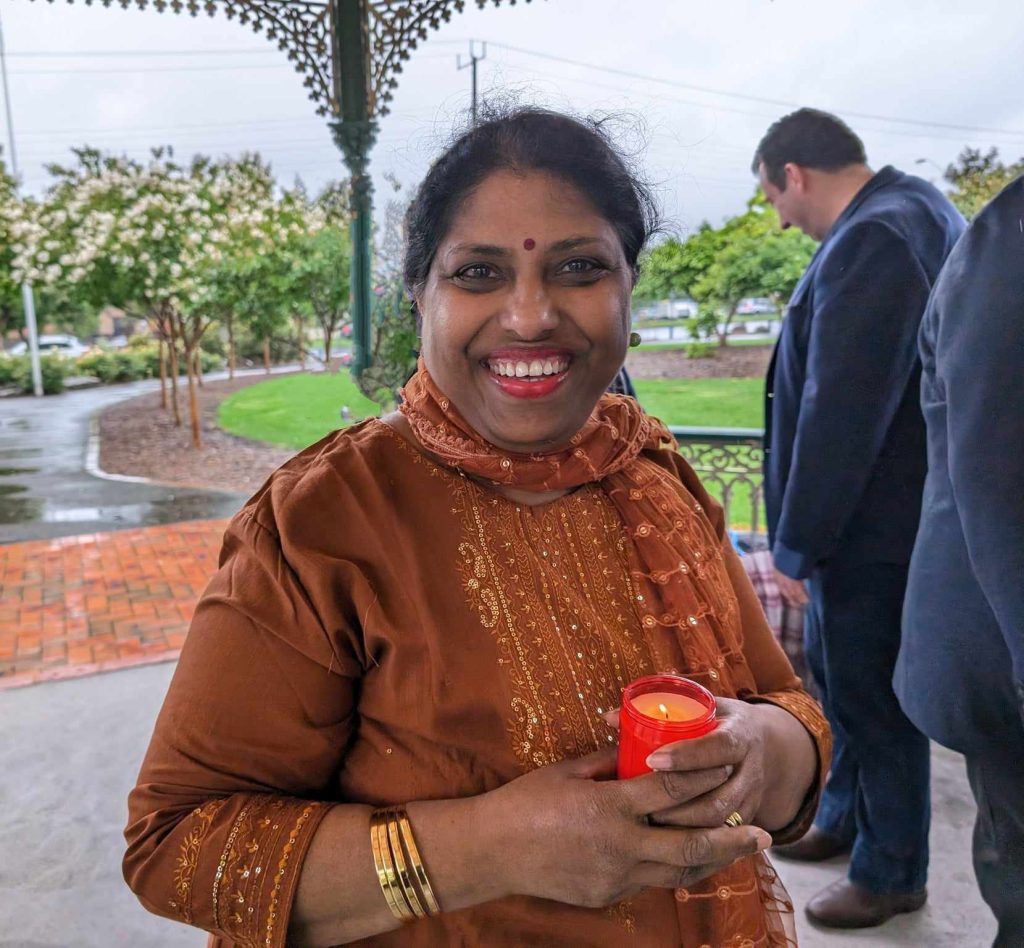
Dot Haynes OAM, representing the Jewish community, said, “War is a monster that consumes everything in its path.”
She called for good governance and added “we are all brothers and sisters in one race, the human race.”
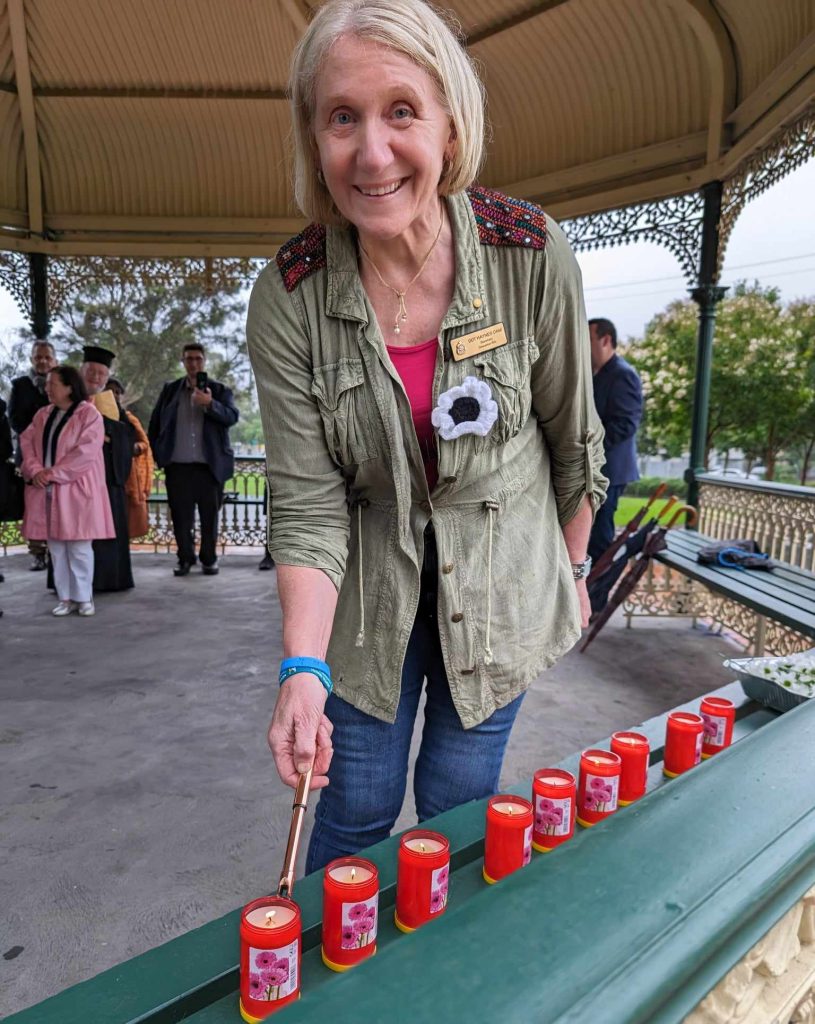
Echoing her calls for good leadership, Imam Sheikh Furqan Jabbar from Craigieburn Mosque said, “Grant wisdom to those in positions of power that they may work towards justice and peace and equity, and towards the preservation of life.”
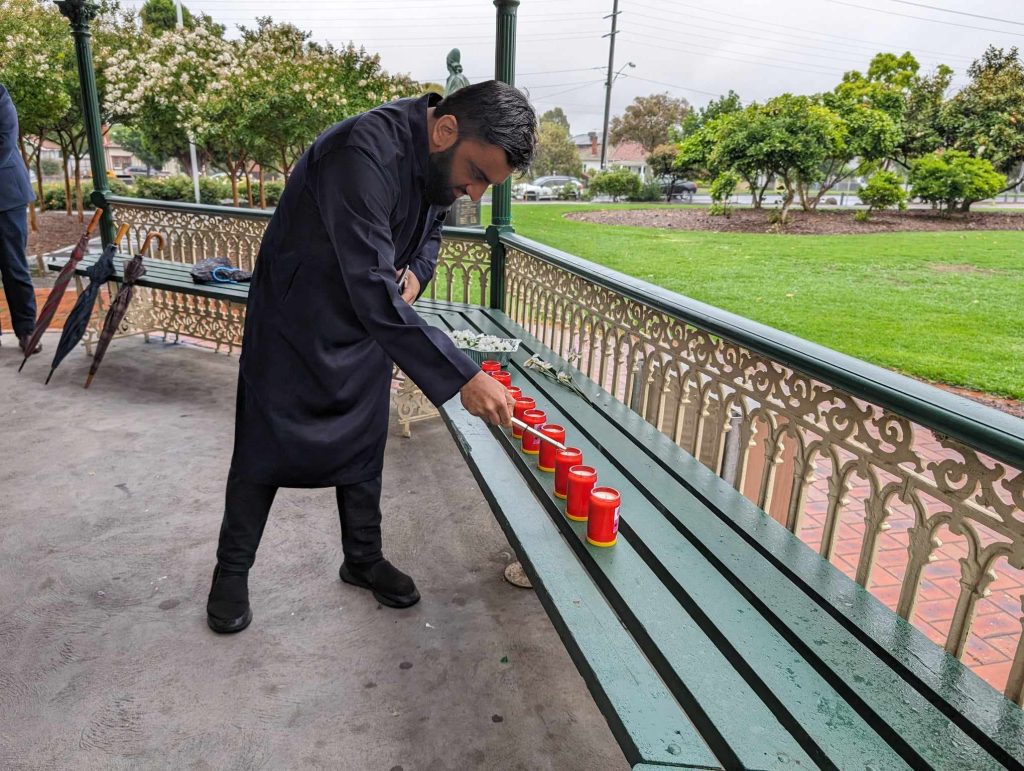
He implored that hatred be replaced with love, “ignorance with knowledge and cruelty with compassion.”
Hidayet Ceylan, a member of the Alevi Community Council of Australia, shared his personal journey of discovery. Born and raised in Turkey, he told The Greek Herald he only learnt of the Armenian Genocide after immigrating to Australia 26 years ago. He spoke of the Alevi community’s unique blend of beliefs, drawing strength from diverse spiritual traditions.
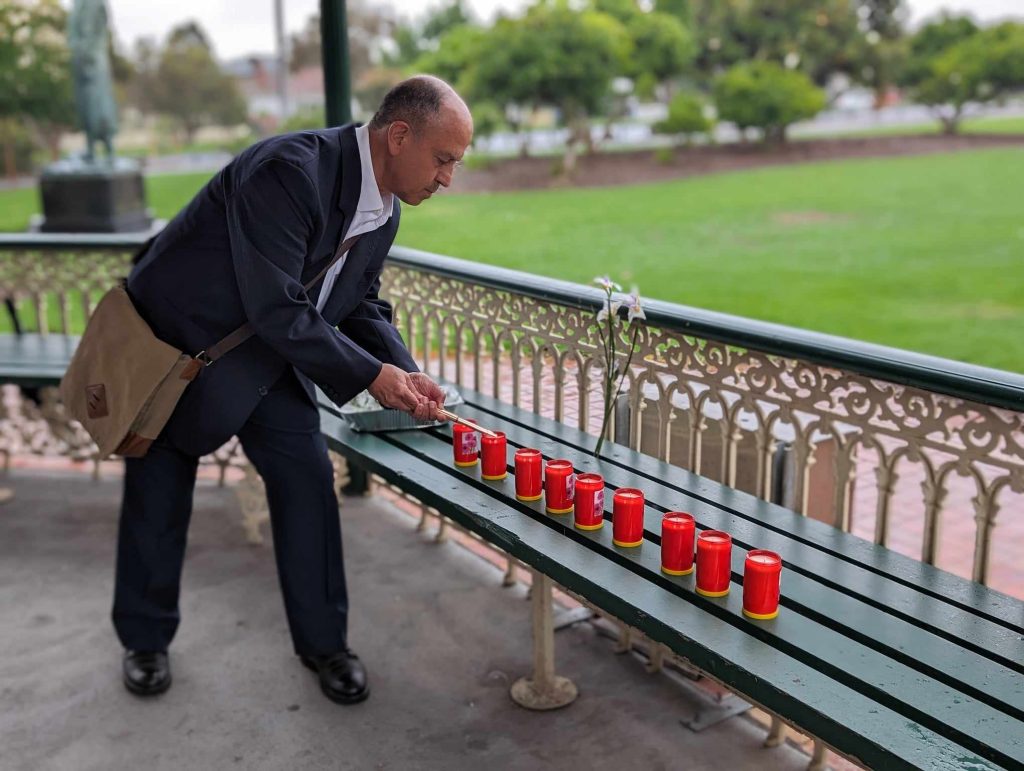
Nikanth Raval from the Hindu community reminded everyone that the responsibility for preventing genocide rests with humanity as a whole.
“If we don’t solve this,” he said, “we will come back next year, with even more victims to remember.”
Sofia Kotanidis, chairperson of Return to Anatolia and member of Darebin Ethnic Communities Council, told The Greek Herald she only found out about her own dark family history by accident. Since then, she has researched genocide and has been a strong advocate for victims.
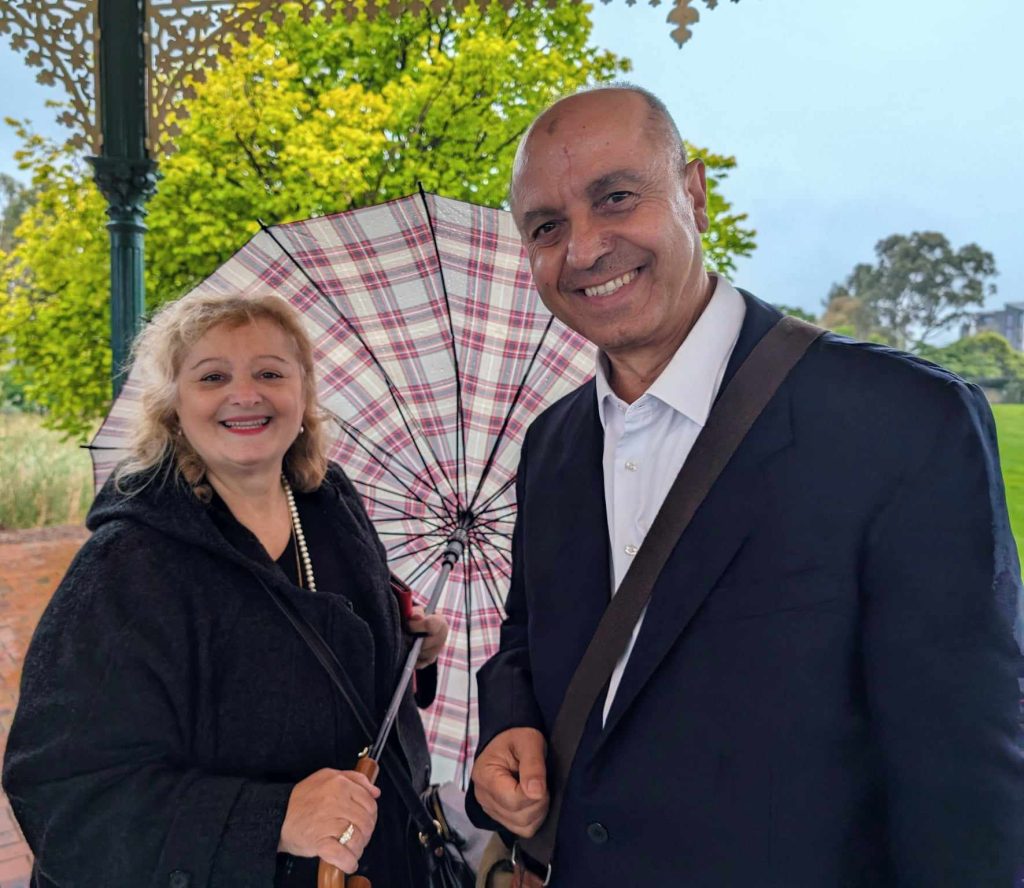
“Both my grandparents were genocide survivors, and though I knew we were Pontian nobody talked about the Pontian Genocide. My family did not want to burden me,” she said.
Once she became aware of the history, things started making sense. She understood her grandmother’s deep sadness.
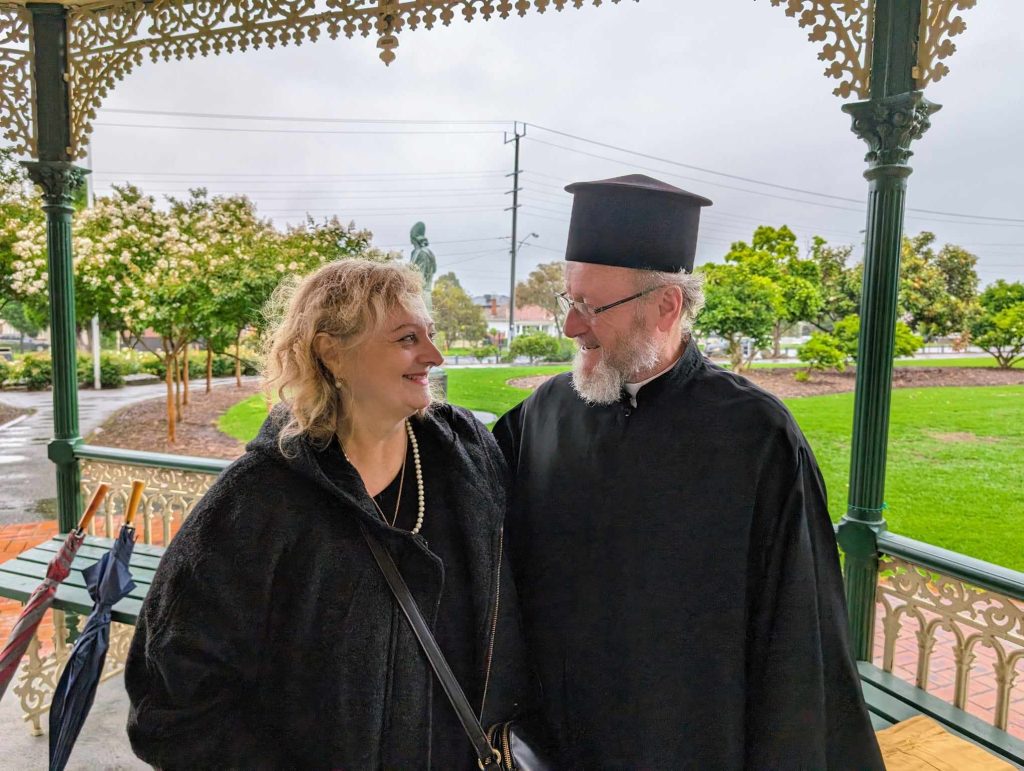
“My grandmother spoke of a golden locked, rosy-cheeked daughter she lost during the Genocide, a child they couldn’t even bury and had just left behind, covered under some metal sheets,” she said.
Merribek Councillor Lambros Tapinos acknowledged the monument’s inclusivity, recognising the massacres of Indigenous Australians alongside other genocides.
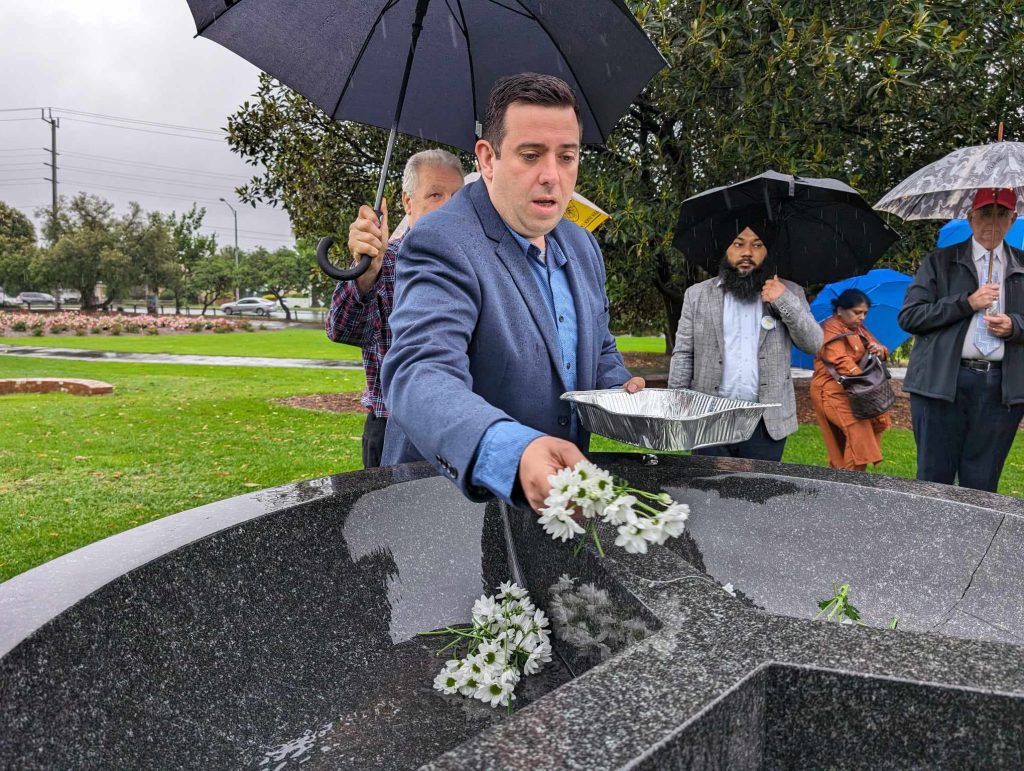
He highlighted the symbolic significance of Merribek council’s name change, moving away from Moreland, named after a Jamaican slavery plantation, towards a future of understanding and respect.
As the ceremony concluded, a sense of shared humanity and determination permeated the air. The faith leaders, united in their diversity, offered a powerful message of hope: that through remembrance, compassion, and collective action, we can strive towards a world free from the scourge of genocide.
*All photos copyright The Greek Herald / Mary Sinanidis.
